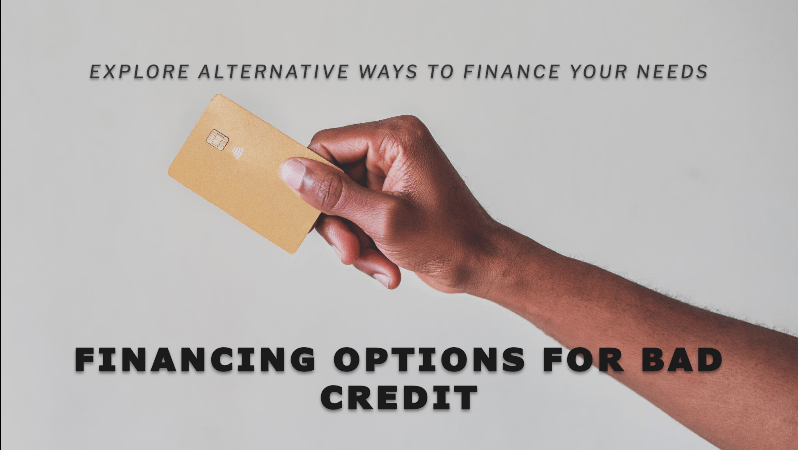Finding yourself in a situation of higher outgoing expenses than incoming earnings is not uncommon these days – with credit offerings left right and centre and interest rates sky high, it’s not hard to end up in a situation that you can’t afford to get back out of.
Without savings, it can seem impossible to get back on track with a healthy credit score once again. Below are some tips and relevant information on how you can save on your debt, working on your credit rating and get yourself out of the bind.
How to get out of debt with no money and bad credit?

Having multiple debts to pay and not enough money to pay them can have you feeling as though you’ve lost control. This loss of control often creates heavy financial pressure and stress in everyday life and most likely – as a result – you’ll manage to come to an agreement with your lending provider to help you in both the short and the long term.
There are a few things you can do to take back control and get back on the right path and will depend entirely on your assets, income and outgoings. With that in mind – we’ve listed some of the first steps we recommend you take to get to a place of negotiating your debts yourself.
List all debts
As a first step we suggest making a list of all your outstanding debts included unsecured and secured lending, credit and store cards, personal debts (friends & family), utilities (electricity, phone, rates) etc. This will help provide a clear outline of your situation for you but also any creditors you do speak with – the more information you can provide, the better.
Money Smart’s asset stocktake calculator helps lay out the following areas: home and contents, bank accounts & super, investments, other debts and provides a summary of assets, liabilities and net value. This can help with negotiating power.Educate yourself
Before you enter any type of negotiations with creditors or plan repayment agreements, revised rates and fees, you must first know your rights. Some creditors, if not all, will have a first reaction to push back upon you so, to have strong conviction in the negotiation, it’s best to be backed by facts, knowing what’s right and wrong in the situation and what rights and protection you have available.
Australian Securities & Investments Commission (ASIC) regulates financial services and products and assists you in what to do when you have a problem with your finances. They provide services to consumers about unclaimed money, loans and credit cards, banking, financial advice and so on. Also, who to contact when you have issues with a financial product or service.
Money Smart is an initiative of ASIC and the Australian Government and provides free and impartial financial guidance, tips and tools to help you make better financial decisions.
Review your budget
Get clear with your expenses and incomings and list them in a detailed budget. If there are places you can cut down on expenses, we recommend doing so ASAP.
This free budget calculator from Money Smart assists you to break down income, home & utilities, insurance and financial, groceries, personal * medical, entertainment & eat-out, transport & auto, children. From here you’ll be able to identify a summary.
Determine what you can realistically afford to repay based on your new asset and budget details
Call your creditors
Explain your situation providing them with information on both your budget and asset details, the funds you do have available and timeline you anticipate this to be the case. There are a few options you can negotiate here which we expand on throughout this article, the path you embark on will depend on your individual circumstance.
How to find out who your debt collector is?
If you owe debts but the lender has stopped calling, don’t assume that they’re letting the debt go or not doing anything with it while ever you’re not hearing from them. Debts do not disappear.
When providing any lending, financial institutions more than likely have a clause in the fine print that allows them the ability to assign or sell accounts that are outstanding and passed 180-days of nonpayment.
Yes most institutions have internal follow up procedures for these accounts, but once it passes the 6-month point, statistics show there’s a high rate of the debt not being paid and therefore the account is no longer worth the time, money and resources of the lending provider to follow up.
They’ll likely have done one of three things:
- Assign the debt to a 3rd party
The 3rd party will follow up the outstanding account on the creditor’s behalf but the ownership of the account itself remains still with the creditor.
Place the debt with a collection agency
The creditor still owns debt and the collection agency takes only a portion of the total amount owed if repayment is successfully obtained.
Sell the debt to debt buyer
This will usually happen as a last resort once all other avenues have been visited with no success. Purchased at a lower amount, the debt buyer then keeps anything collected over that purchased amount as profit and the creditor receives only the original purchased amount.
The perk for the creditor? They are no longer responsible for the debt and have reclaimed at least some of the outstanding account. If you’re not sure where your debt has gone, we’ve got a few options you can take to locate who your debt collector is.
- If you’ve received calls and haven’t answered them due to not being aware of the number – the quickest and easiest option here is to enter the number in a search engine to see what comes back.
- Phone your original creditor to obtain status of your account (handed over, sold etc) and request details on who they debt is currently being managed by. It’s always handy to have them follow the conversation by providing written confirmation of the new contact details.
- Check your credit report, it will include details on where your outstanding accounts are held. Money Smart says ‘you can receive a free copy once a year if you can wait 10 days from the date you request it. If you need a credit report sooner, or if you want more than one copy in a year, you may have to pay. Below are a list of providers as supplied by Money Smart:https://forms.mycreditfile.com.au/Apply/Index?form=FreeCreditFilehttps://www.creditcheck.illion.com.au/http://www.experian.com.au/order-credit-report/
- If you’re being contacted by a company claiming to hold your debt but you’re feeling unsure, request written validation from them before you enter into any further engagement.
How to negotiate your debt
Ensuring that all entries and details on your credit score are correct and current is a good tactical move as there may be incorrect dates or amounts, entries listed more than once, failure by your lender to update payment plans or even notify you of outstanding debt. Below are a list of free credit score providers as supplied by Money Care.
- https://www.creditsavvy.com.au/
- https://www.creditsimple.com.au/
- https://www.finder.com.au/credit-score/login
- https://www.getcreditscore.com.au/
- https://www.wisrcredit.com.au/
Now that you’re sure everything is correct on your score, here are are some of the most common tactics that can be used when speaking with and entering a negotiation with your lenders if you’re struggling to meet repayments due to financial difficulties. (You’ll have received more detailed information after seeing free financial and legal advice as mentioned earlier).
- Revised payment arrangement based on your situation, funds available & timeline. Revisions can include:
- Extended loan period, lessening the repayments
- Reduction in monthly repayments
- Period of frozen interest so that your repayments are coming directly off the outstanding debts
- Temporary hold or elimination on fee’s and penalties
- Do a balance transfer of your credit card on an interest free rate
- Extend the period of the loan to bring the repayments down
- For a longer-term solution, the account can be cancelled with no future fee’s while you repay the outstanding balance.
Lump say repayment
A lower amount than what is owed is negotiated based on it being made in one lump sum.
- Reconsolidation
You can consolidate all debts into one for one smaller repayment at lesser interest rate. If your creditor refuses your offer or attempt of negotiation, you can dispute it if you do not agree. Free dispute resolution is available via Australian Financial Complaint Authority (AFCA) or by calling 1800 931 678.
AFCA provide consumers and small business with faire, free and independent dispute resolution for financial complaints.
Free financial advice and support is available, by visiting the National Debt Helpline for articles and information or phone them on 1800 007 007. They will be able to point you in the right direction for advice.
If you require free legal advice during or after negotiating, you can visit the National Association of Community Legal Centres website (NACLC) or phone 02 9264 9595 for free legal help including information, referral, legal education, advice, casework and representation services.
Reach out to bad credit loan lenders to pay off your debt
You can look to borrow one lump amount from just one lender to pay off other multiple debts. A lot on institutions view a poor credit score/report as a red-flag and therefore won’t lend due to liability – but there are still lenders who offer credit to those with bad credit scores and reports.
Here are three places we’ve found to visit:
- https://www.loansau.com.au/bad-credit-loans-australia/ “At Loans AU, we specialise in finding lenders that can offer bad credit loans Australia wide for our customers who need some help to get out of a tight money spot. We’ll search the internet for lenders, so you don’t have it. We’ll do our best to find you a lender that can offer a bad credit loan when you need it most.”
- https://gorapid.com.au/bad-credit-loans/personal-finance “At Rapid Finance, we have helped thousands of Australians with a less than perfect credit history. If you’re looking for a bad credit loan allow Rapid Finance to do the work for you. A bad credit expert will identify your financial strengths and use them to negotiate with various lenders.”
- https://www.jacarandafinance.com.au/bad-credit-loans-australia/ “With us, you can borrow up to $10,000 in the most hassle-free way. Bad credit is a result of the past and we know that that’s where it should stay!”



